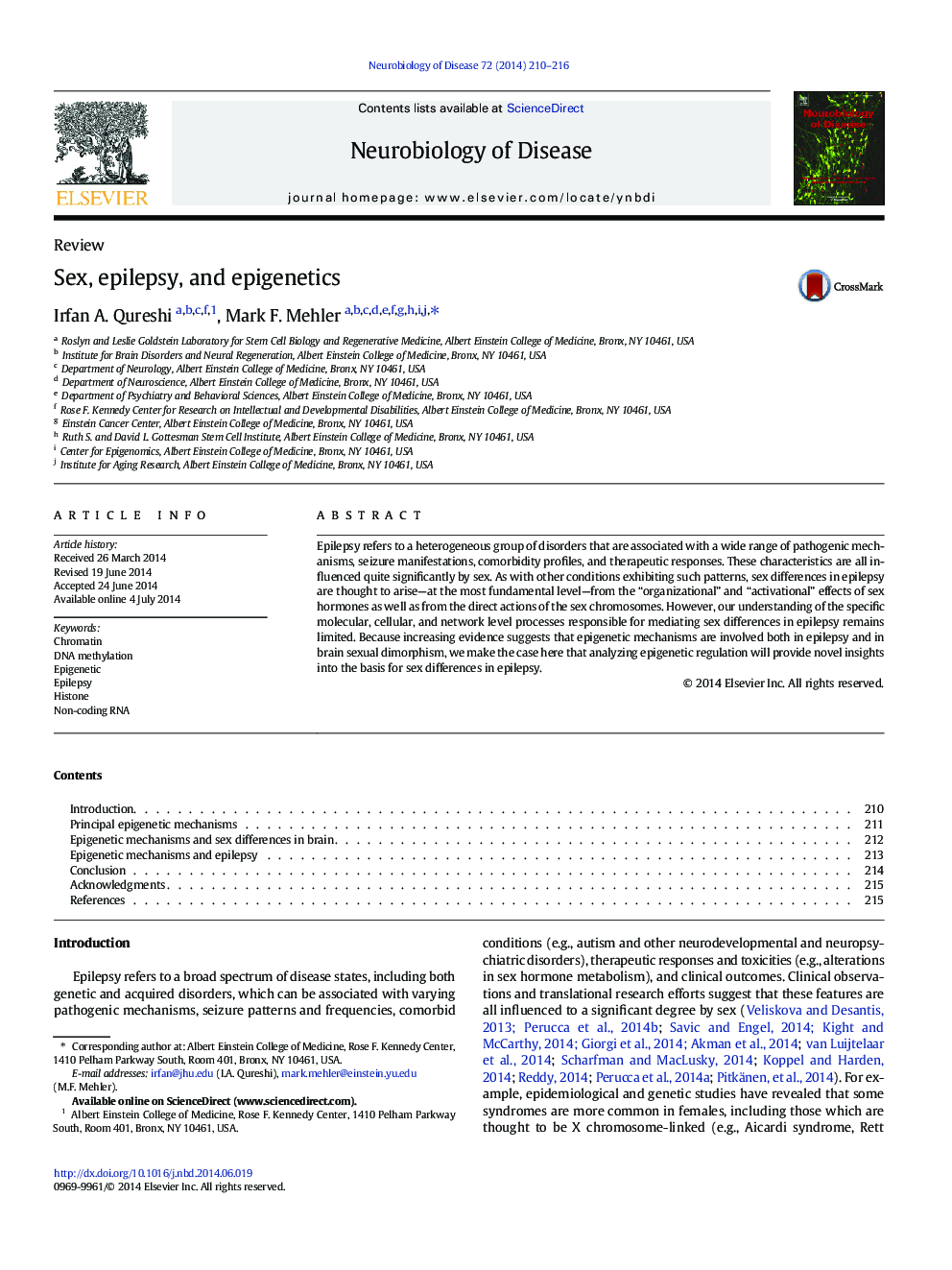| Article ID | Journal | Published Year | Pages | File Type |
|---|---|---|---|---|
| 3069328 | Neurobiology of Disease | 2014 | 7 Pages |
•Epigenetic regulation mediates brain sexual dimorphism and epilepsy pathogenesis.•Epigenetic mechanisms include DNA methylation, histone modifications, and non-coding RNAs.•Analyzing epigenetic (de)regulation will provide novel insights into sex differences in epilepsy.
Epilepsy refers to a heterogeneous group of disorders that are associated with a wide range of pathogenic mechanisms, seizure manifestations, comorbidity profiles, and therapeutic responses. These characteristics are all influenced quite significantly by sex. As with other conditions exhibiting such patterns, sex differences in epilepsy are thought to arise—at the most fundamental level—from the “organizational” and “activational” effects of sex hormones as well as from the direct actions of the sex chromosomes. However, our understanding of the specific molecular, cellular, and network level processes responsible for mediating sex differences in epilepsy remains limited. Because increasing evidence suggests that epigenetic mechanisms are involved both in epilepsy and in brain sexual dimorphism, we make the case here that analyzing epigenetic regulation will provide novel insights into the basis for sex differences in epilepsy.
